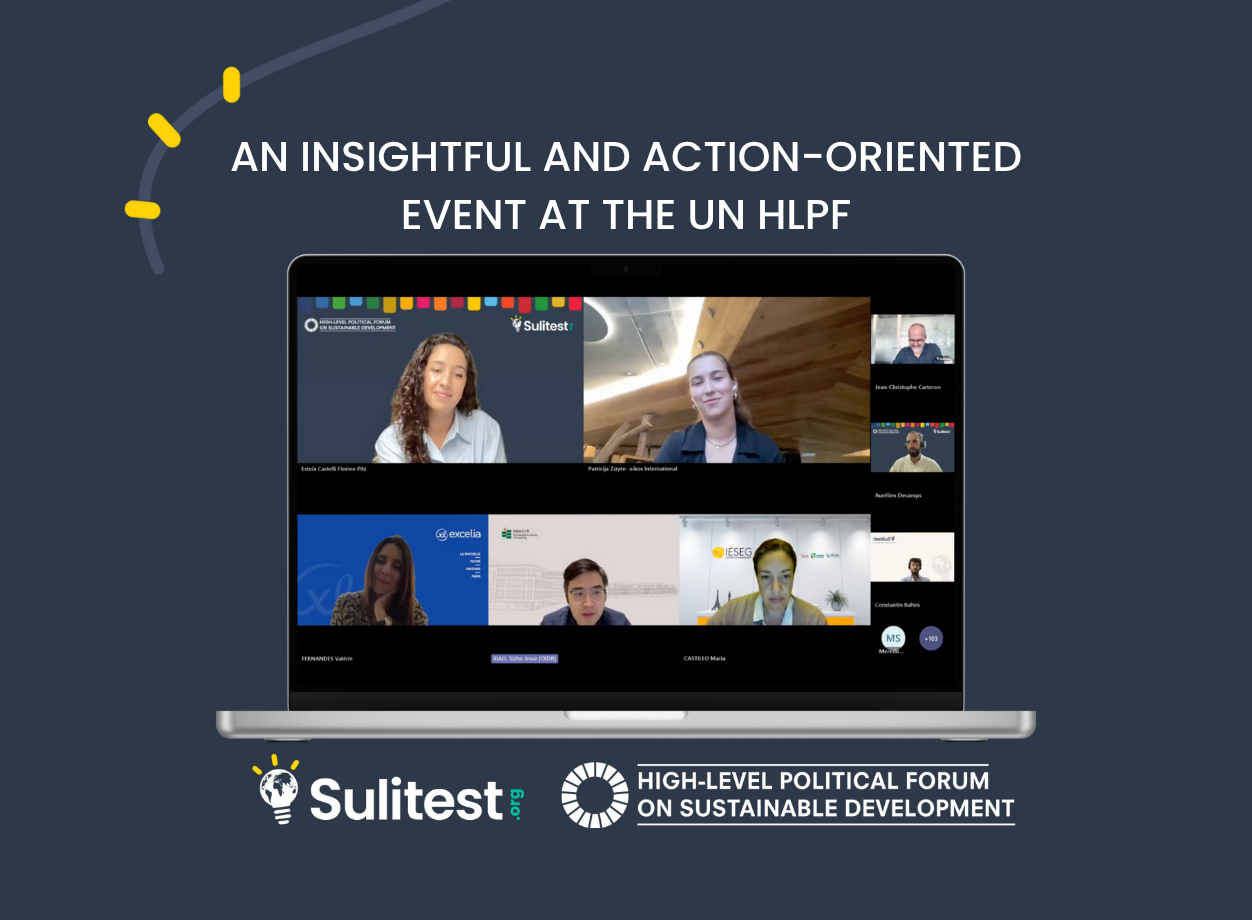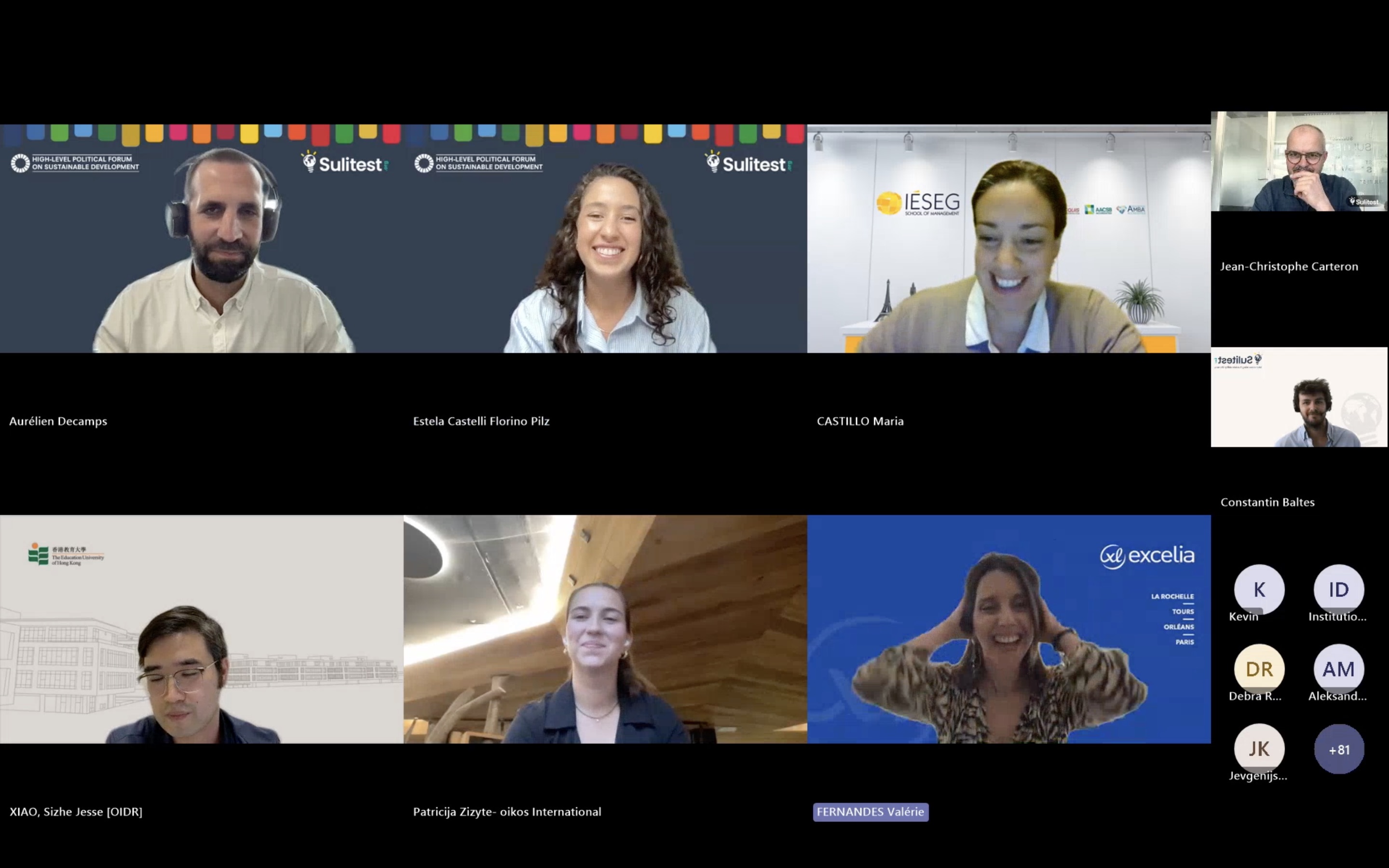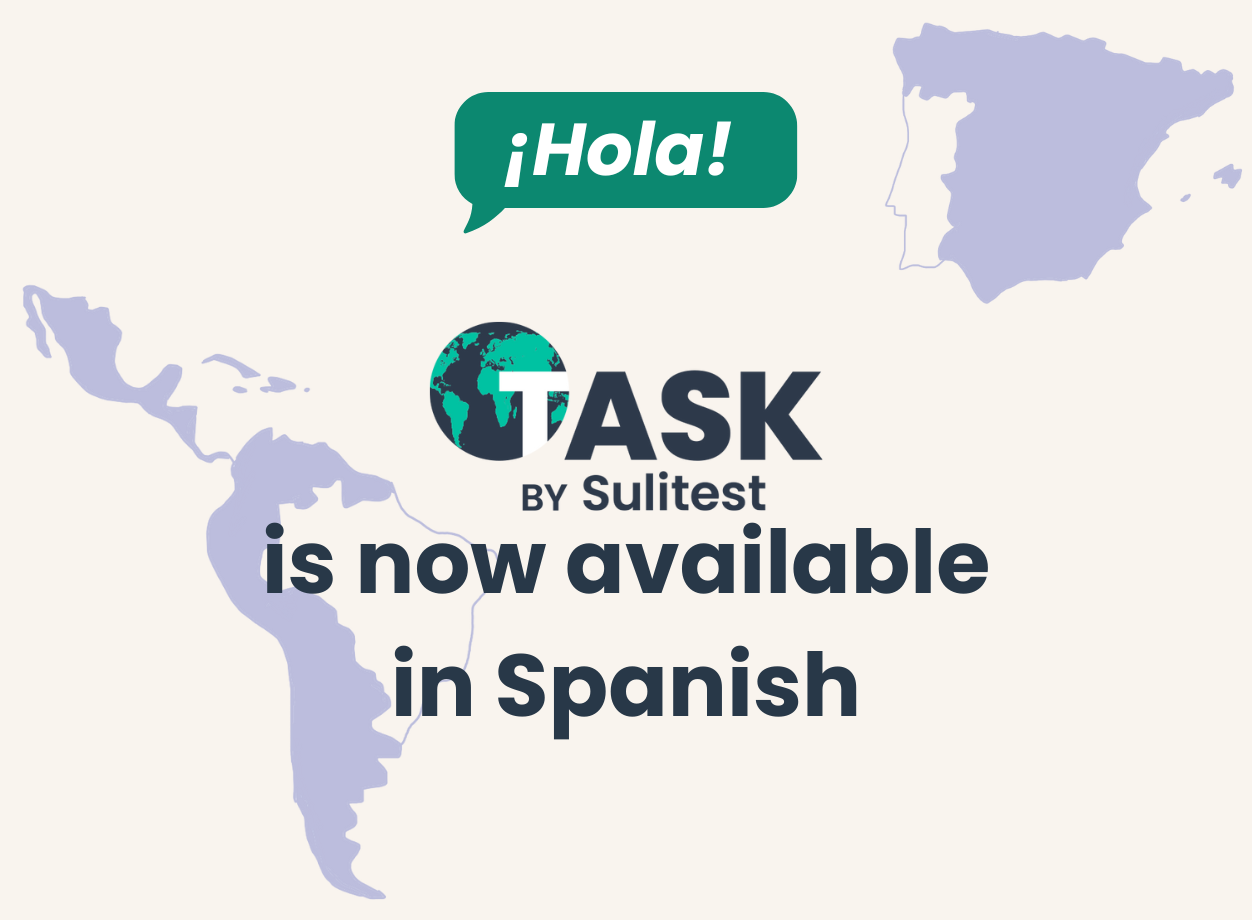
Teaching the Change: Inclusive, Evidence-Based Learning for the SDGs

At this year’s UN High-Level Political Forum (HLPF), we brought together educators and student leaders from around the world for our event: “Teaching the Change: Inclusive, Evidence-Based Learning for the SDGs.” The session explored how higher education can become a transformative force for sustainability by grounding teaching in science, supporting faculty, empowering students, and fostering inclusive pedagogy. This blog presents key highlights of this thought-provoking conversation.
Sulitest: The power of data & trends of sustainability knowledge
The event opened with insights from Aurélien Decamps, co-founder of Sulitest, who presented key trends from the 2024–2025 academic year, based on over 20,000 assessments across 18 countries. Launching the Annual Report, published here, he explored key trends of what students know (and don’t know) about sustainability.
He emphasized the value of using TASK™ assessments to track learning progress and noted that “while many professionals are committed to sustainability, a significant number still feel underprepared by their education. There’s a clear need for upskilling.”
PRME: Advancing education
Meredith Storey from PRME reminded us that sustainability education is not just an academic challenge—it’s also a human one. “It shouldn’t feel like sustainable development is something we only engage with twice a year,” she said. “It’s a continuous, collective effort.”
Storey showcased PRME’s work through the Impactful Five (i5) project, developed with the LEGO Foundation, Harvard and Sulitest, which encouraged experiential, playful, and holistic approaches to pedagogy. From faculty certification and case-writing initiatives to student leadership programs and curriculum design resources, PRME is helping embed sustainability at all levels of learning. “We’re not just building bridges—we’re growing deep roots.”
Panel: insightful and thought-provoking approaches to sustainability education
1. Grounding sustainability education in science
Maria Castillo (IESEG) opened the panel with a clear message: in an era of politicized sustainability discourse, educators must hold the line.
“Curricula must be bulletproof—anchored in science and based on the most reputable data from institutions like the IPCC and UNEP.” She emphasized making science relevant by linking it to business realities. “When students see that Under Armour’s insurance premiums rose 26% due to climate impacts, they understand that sustainability is not just theoretical—it’s a financial issue.”
Valérie Fernandes (Excelia) echoed the importance of faculty support. “Without engaged faculty, you can’t do anything.” Excelia offers annual trainings in decarbonization and sustainability mindset development and ensures that all ecological transition courses are fully credited. “It’s about embedding sustainability into the DNA of the curriculum—not just adding a box-ticking elective.”
Grounding education in science must also include space for interpretation, relevance, and action—where students aren’t just taught knowledge, but empowered to apply it meaningfully. As Patricija Zizyte of oikos International explained,
“When students are overwhelmed with all this sustainability misinformation, with all these globalized challenges, they seek involvement. They seek something tangible. They want to have agency—over anything.”

2. Empowering students to engage critically and safely
Zizyte highlighted the emotional complexity students face: “Eco-anxiety stems from information overload and the sense of powerlessness.” oikos supports student-led projects that provide local, hands-on action and build peer communities. She reminded that “the magic doesn’t happen during big events. It happens over pizza, when students connect and make sense of what they’re learning,” and highlighted the importance of creating spaces for connection. “Universities focus a lot on thinking and acting—but forget about being, relating, and collaborating. These are essential competencies for sustainable leadership.”
Fernandes shared Excelia’s example of creating empowering, action-oriented environments:
“We address eco-anxiety by giving students the chance to act—with humanitarian missions, climate fieldwork, or immersive experiences that build both empathy and agency.”
At IESEG, students take part in semester-long consulting projects with real organizations. Castillo explained: “At first, students oversimplify the issues. But over time, they develop systems thinking and critical analysis by confronting real-world complexities.”
Jesse Xiao (The Education University of Hong Kong) described student ambassador programs and simulations like UN Model that foster debate, empathy, and SDG literacy. “We pair reflection with action, helping students shift from emotional reaction to informed, constructive engagement.”
3. Designing inclusive and transformative pedagogy
“Inclusive pedagogy means creating spaces where all students feel seen, respected, and empowered to contribute,” said Castillo. At IESEG, this includes partnerships with UNICEF on SDG projects in Uganda and Benin, and a collaboration with L’Oréal to train and support long-term unemployed women re-entering the workforce.” These collaborations push us to rethink how we teach—and for whom.”
Excelia promotes inclusive pedagogy through experiential and gamified learning. Students participate in climate walks, humanitarian missions, and simulation games. Fernandes also acknowledged a challenge: “We proposed a degrowth elective— ‘Rethinking the Economy’—but too few students signed up. Many still prioritize what they see as employable skills.”
As moderator Estela Castelli Florino Pilz reminded the audience, inclusive sustainability education must also recognize the constraints students face.
“Not all students have the privilege to engage with extracurricular activities—they may have jobs, internships, or financial responsibilities. If sustainability learning only happens outside the classroom, it won’t reach everyone who needs it.”
Xiao shared how EduHK designs inclusive learning environments by embedding diverse perspectives, encouraging intergenerational exchange (e.g., with elderly residents), and enabling self-awareness through reflection. “We’re not just teaching—we’re cultivating compassionate, collaborative leaders.”
Zizyte concluded with a powerful reflection: “Universities must become houses of transformation, not just knowledge. Every student should graduate having experienced a personal journey of growth.”
Takeaways & next steps
This event offered practical strategies and philosophical shifts alike.
As Aurélien Decamps invited:
“Don’t wait to be perfect to assess your practice and learn from it—not only from your success stories, but also from where you need to improve.”
For those ready to act:
- Use Sulitest’s TASK tool to assess student knowledge and track progress
- Explore PRME’s resources
- Engage with and support student organizations like oikos
- Foster inclusive, cross-disciplinary partnerships—both on and off campus
Together, we can teach the change—and equip the changemakers our world urgently needs.
This event was filled with practical insights. While this blog offers a summary, we encourage readers to watch the full recording available here.












